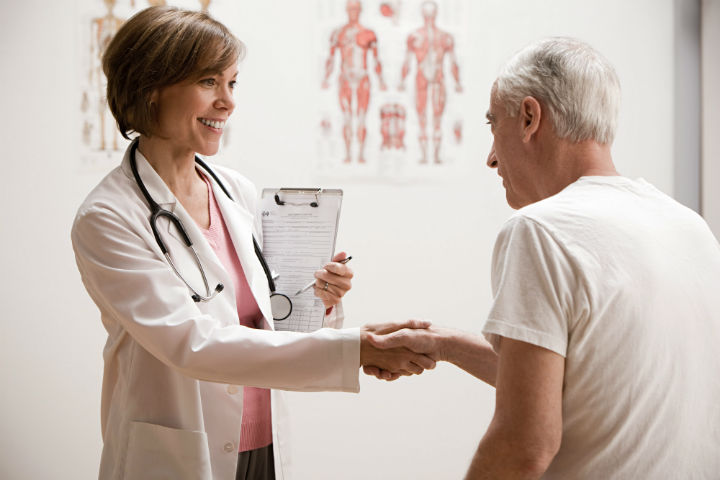Full disclosure: I believe in human contact. Early in my medical training I learned the value of putting your hand on a patient at the bedside and of holding a patient’s hand when they were frightened or in pain.

In a social or professional setting, I respect a good handshake: It’s a gesture of good will.
As a physician, I was trained in the value of human contact.
There are times in the clinical setting where touching a patient on the shoulder or putting your hand on theirs is a necessary comfort and part of the clinical continuum.
But, I believe the medical profession is at a moral crossroads. As a whole we are experiencing a crisis of empathy.
The volume and acuity of the work we do has taken its toll.
We now have the highest rates of clinical burnout and caregiver burnout.
The effects of repeated virtual trauma have taken its toll.
All too often the patients we treat comment on how we “no longer care.”
Have we become detached in an attempt to survive? Have we repeatedly seen to much? Have we lost touch with the human condition?
As a doctor, all too often, I’m there for the worst day in a person’s life.
- Buzz kill? Gen Z less interested in coffee than older Canadians, survey shows
- ‘She gets to be 10’: Ontario child’s heart donated to girl the same age
- Bird flu risk to humans an ‘enormous concern,’ WHO says. Here’s what to know
- Canada updating sperm donor screening criteria for men who have sex with men
READ MORE: Heart health: Why an Aspirin a day might not be best for everyone
But I’m not just a doctor. … I’m a human being.
One of the greatest gifts medicine has to offer its providers is the ability to connect with the human condition.
Yes, I am there for the worst day on many peoples’ lives, but I learned long ago that it is indeed how you handle that “worst day” that can make it a little less horrific for the patient in front of you.
This brings me to the power of human contact.
Last week, an article appeared in the Journal of the American Medical Association (JAMA) calling for an “end to the handshake in clinical settings”.
The premise of the article was that hands are indeed a reservoir for infection and shaking hands with your patients could potentiate the spread of bacteria and viruses from one patient to another.
The article makes an excellent point: Studies show that only 40 per cent of physicians have good hand hygiene in the clinical setting.
READ MORE: Do you have atrial fibrillation? What you should know about treatment
Furthermore, our stethoscopes are as bad as our hands in transmitting bacteria between patients.
In short, doctors (and nurses as well) are vectors for bacterial transmission.
So, do we take it one step further and establish a non-contact form of a greeting when introducing yourself to patients and families? The JAMA article suggests that this might be a good idea.
I don’t agree. I believe in human gestures.
I believe that in medicine we should not sacrifice the most human of these gestures in the care of the sick.
I believe that we take a few extra seconds after shaking a patient’s hand to wash that hand and prevent the spread of infection. I don’t believe that we stop the practice all together.
A handshake is one of the most human social gestures in North American society. It says to a stranger “I acknowledge you, I see you.”
Medicine as a whole could stand to have more of these gestures under its clinical umbrella. In short, my profession could handle a higher dose of manners among its providers.
An increase in such basic human gestures may help us ward of the tides of burnout and apathy that we face.
This connection to the human condition may be the best vaccination towards some of the emotional indifference that is plaguing my profession.
Yes, doctors are scientists and the science suggests that we are not very good at infection control.
But, instead of putting further barriers between our patients, and ourselves let’s just get better in an area we are lacking.
Sixty percent of physicians fail the grade at proper hand hygiene.
Instead of keeping our hands to ourselves, let’s wash them more often and extend a clean one to a patient or a family member.
The only thing we stand to spread in that case is a healthy dose of empathy and concern for another human being.
Dr. Ali Zentner is the medical consultant for Global National’s “Health Matters” segment.



Comments